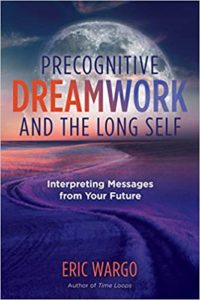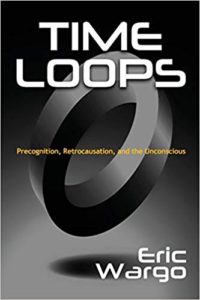Star Wars is a remake of Ordinary People
Some films get sort of obscured, in hindsight, not only by their own famousness or popularity, but also by standard interpretations. Rashomon is one example: The handy notion that Kurosawa’s classic is about relativism, different people having multiple points of view, has essentially controlled our viewing of that film since it was released. Yet the film can hardly be reduced to that, and if you pay attention, there’s darker, more interesting stuff going on in the succession of “witnesses” to the bandit’s trial.
The original Star Wars trilogy is in a similar boat. After Star Wars was released it quickly got linked to the myth scholar Joseph Campbell, whose The Hero With a Thousand Faces supposedly influenced George Lucas when he conceived and wrote the original trilogy. Campbell’s idea is that every culture’s mythology includes some variant of the hero journey, in which a young person of uncertain parentage (Luke Skywalker) is set off on a quest, undergoes various standard ordeals (meeting a wise helper/teacher—i.e., Obi-Wan Kenobi; receiving a boon—i.e., the light saber and knowledge of the Force; going into the belly of the beast—i.e., the Death Star; etc., etc.), and gradually learns about and fulfills his destiny. Lucas was consciously trying to create a new American myth, borrowing elements of earlier myths (as all myths do—what Levi-Strauss called “bricolage”) as well as historical motifs like the American revolution. But unfortunately, the Campbell hero business, along with the campiness of the films and then the awful prequel trilogy, gets in the way of seeing the films through new eyes. I think it’s high time that the obvious critical truisms and just-so stories be set aside, just like our targeting computer, so we can exercise a more direct critical force.
It does need to be acknowledged that Lucas was phenomenally successful in his aim of creating a new myth. The characters in the films are all, or have become, “archetypes of the collective unconscious.” And the central mythic story, like other hero myths, is a powerful family drama: i.e. the son versus the father. For people who grew up with the films, the characters are part of their personal mythology.
For example, over the years I have had a string of strange and interesting dreams about Darth Vader. They aren’t scary dreams. In all of them, Vader is a sympathetic figure (as he becomes at the very end of the original trilogy)—indeed, sort of pathetic. In one, his robe was tattered and I could see that he had skinny old-man arms. In another, he was a gentle mentor/father figure and gave me a sweater as a gift—a sweater he had personally knitted out of debris from the planets he had destroyed. In all the dreams, I sensed how misunderstood and lonely Darth Vader was: He was well-meaning, quiet, wanting harmony and peace but somehow unable to achieve it and forced to do bad things for good, pragmatic reasons that everyone else was unable to grasp.
For me, the family in late 20th century America, when I grew up, is a good lens through with to view the Star Wars films—perhaps a more revealing one than the hero-myth stuff. This is why I like to compare the original Star Wars trilogy to, of all things, Ordinary People. It’s not crazy. If you strip away what is nonessential about both stories, you’ll see that the two films center on the very same themes, and even have essentially the same plot: A weak father is unable to stand up to a powerful, evil force on behalf of his son, until the conflict between those two oppositions comes to a head and he is forced to make a choice. The screenwriting guru Robert McKee pointed out that Ordinary people is not really about the young Conrad (Timothy Hutton); it is about the failure and then redemption of his father Calvin (Donald Sutherland). Likewise, if you strip the Star Wars saga down to its really interesting parts and cut away the fluff, it is not really about Luke; it is the story of Darth Vader’s fall and ultimate redemption.
But what’s this “weak father” business? One doesn’t generally think of Darth Vader as a “weak” character. Yet consider: Is Darth Vader really scary? I submit that he is not. Or rather, he’s not scary for the reasons people generally assume. He is big and dresses in a black suit, and wears an intimidating mask, but what is scary about him is not the things he does to others. He doesn’t really do anything in the films except for strangling a couple of incompetent subordinates with his mind—big deal—and, of course, at the climax of Empire, he cuts off his son’s hand in a duel (instead of killing him). No, he is scary for what he takes from others—obedience and subservience, even to the extent of being forced to sacrifice his own flesh and blood.
Darth Vader’s constant role in the three films is to carry out someone else’s wishes. In the first film we don’t really see his relationship to the Emperor, just to the Death Star commander Moff Tarkin, and Darth seems to be a kind of absurd lapdog, ever so slightly ridiculed by Moff for his “old religion.” In the second and third films, of course, we get to see Vader’s relationship to the Emperor more clearly, and see how his role is essentially that of the Emperor’s right hand man, doing whatever the Emperor says to do—even to the extent of delivering up his own son Luke to meet his doom. Vader is clearly conflicted about this: He wants his son to join him and, with him, to overthrow the Emperor, but when Luke refuses, he finds he cannot betray the Emperor. Between the demands of his son and those of his master, he finds it is the latter that, sadly, has more hold over him.
This obedience to a master is what makes Darth Vader scary. He is scary because he is weak, and because he represents a possibility we all see in ourselves: to do bad, indeed to defeat ourselves, harm the things most precious to us (for example our own flesh and blood), out of obedience to something whose remote strength and power we fear. This is a powerful archetype, and what makes the character of Darth Vader so compelling, I think. The asthmatic wheezing is a nice way of representing this essential weakness and dependency of Darth Vader: He’s like an old man on a respirator—not merely a father but an ailing, dying, failing father.
Ordinary People is of course about the same thing: A well-meaning but passive father watching as his family is torn apart and unable, until the end, to step in and change things, because it would mean a betrayal. As in the Star Wars trilogy, the external conflict is between his son and a force opposing his son, driving his son to impulsiveness and self-destruction. The internal conflict is his loyalty to both of these forces. The conflict comes to a head when Donald Sutherland confronts his wife Beth (Mary Tyler Moore) with why she asked him to change his shoes before their drowned son’s funeral; it climaxes in the kitchen at the end, when he tells her “I don’t think I love you anymore,” and stoically she packs her things and leaves. This scene is equivalent dramatically to Darth Vader casting the Emperor into the abyss at the end of Return of the Jedi.
The analogy appears to break down, of course, when we consider the nature of the “opposing force” in both films. In one film, it is the mother’s coldness and inability to forgive her surviving son for the accidental death of his brother, her favorite. Although self-possessed, she is also weak of heart, which her husband finally points out to her, and he cannot forgive it, nor forgive what it has done to their surviving child. The opposing force in the Star Wars films, however, is the “dark side,” embodied in the Emperor. We need to ask what this “dark side” really is.
What is so powerful about the Emperor that his deputy, Vader, will go so far as to hurt his son and even deliver him to his (probable) death? Even for the most workaholic, a man’s boss doesn’t have the power to override loyalty to his son. Such a thing just doesn’t make sense as a plot device. Something else is going on in these films. Ordinary People reveals what it is, I think. The one thing that (in the real world) could be powerful enough to cause a man to betray his son is his wife.
So consider the odd thing about the Star Wars films: the Emperor. This cold, effeminate (he has been described as a “drag queen”), demanding, outwardly fragile figure is not a commander/superior in the usual sense (i.e., Moff Tarkin, Vader’s “boss” in the first film), but a negative female archetype: a cold wife/mother.
The Emperor is actually a wife/mother figure, and Darth Vader a weak husband/father who cannot stand up to her until the end. Defiance and individuality on his father’s part is what Luke misses/lacks/longs for—a model of his own defiance, of his own “standing out” in the universe, of his own “rebellion.” Several times Darth Vader refrains, “You don’t know the power of the Dark Side.” James Earl Jones’ deep voice causes us to hear this as a kind of promise, held out to Luke to tempt him with the promise of having power and being able to rule the universe at his father’s side. But its real meaning, I think, is completely different: You don’t know the power the dark side wields over me. It is why I cannot save myself—or you. You don’t know the power of your mother. Nothing can stand up to her. I can’t stand up to her. I’m helpless.
Luke never knew his father, because his father was weak, disappeared behind a hardened mask. This weak, distant father in the shadow of a cold, repressive mother is a real “type,” esp. in the postwar world. I’m sure I’m not the only man whose dreams are full of Darth Vader figures that are really more like Donald Sutherland in Ordinary People. They are the same character, and the son in both films is essentially in the same position: trying to understand himself and be understood by a passive father, in the face of opposition by a remote and chilly mother. The climactic end of both films is the redemption of the father, finally standing up to ‘her’ on the son’s behalf.
That George Lucas failed to see or acknowledge the true relationship between Vader and the Emperor explains many things. The whole “prequel” trilogy is really a retroactive and failed attempt to justify deflecting the whole central issue in the films from anything genuine and troubling: to somehow make Darth Vader’s conflict be about something other than a sexual relation, somehow justifying the Emperor as something worthy of incredible loyalty on the part of Anakin/Darth. That is what the Force (or at least, the dark side) is: a dramatic contrivance to obscure the sexual relation. But it is completely contrived, and the prequels fail miserably because of it.



